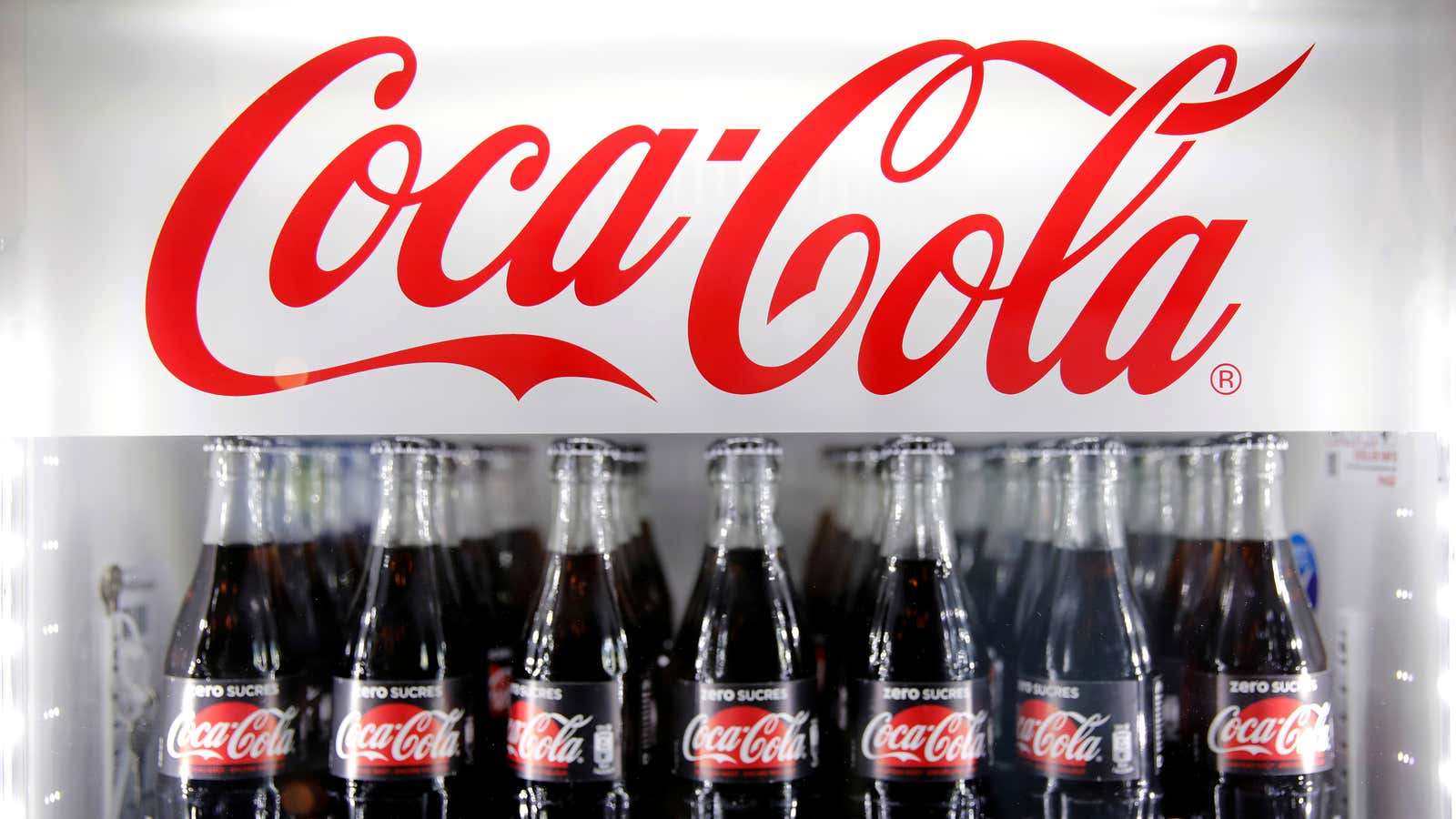In hindsight, the corporate fuss over sugar was misplaced.
For years, consumers have been angling for food companies to use less sugar in their manufactured goods for health reasons. For their part, companies have tinkered with reworking their recipes, but they have also attempted to use their financial might to smother negative research about the effects of sugar. The industry was caught in 2015 (paywall) and 2016 for that behavior.
With sugar increasingly linked to health problems—such as heart disease, obesity, diabetes, and tooth decay—reducing the amount of sugar in the food system has become a priority among health officials. Still, the food industry hasn’t always been so eager to change its own formulas for such drinks. But perhaps changing those formulas isn’t as big a deal as those companies once thought.
In a recent interview with Businessweek, Coca-Cola’s new CEO, James Quincey, spoke in blasé terms about the reaction to his company’s decision to quietly reduce the amount of sugar in some of its drinks across different parts of the world:
In Australia, we took—I think it’s 15%, I’d have to check—of the sugar out [of Sprite] and put in Stevia as a replacement. Obviously, you put it on the label from a legal point of view. So we took some of the calories out of Sprite. And consumers like Sprite now as much as they did before. Then, in Europe, we took 30% of the calories out of Fanta to see what would happen. Again, sales seem to be continuing fine.
To be sure, not all recipe changes have gone well. Pepsi last year decided to put the artificial sweetener aspartame back in its line of diet soda after a customers revolted against the company switch, which was rolled out with some fanfare. Still, the general use of new ingredients, such as bitter-blocking mushroom powder and stevia, are helping companies make the move consumers have been craving.
From a global perspective, the two largest soda companies have faired pretty well across the last decade, particularly Coca-Cola. The industry is wrestling with a decrease in sales growth, but for the most part sales by volume has grown, according to data by Euromonitor.
Still, soft-drink consumption has decreased in some parts of the world, including in the US, which has become a something of a battleground between the soda industry and health advocates who are aggressively pushing the idea that sugary drinks should be taxed. Whether it’s reworking recipes or or finding other ways to reduce the amount of sugar people consume from their products, the industry still has a ways to go before it can shed its sugar-laden reputation.
